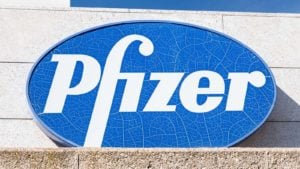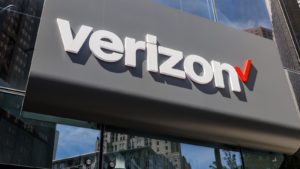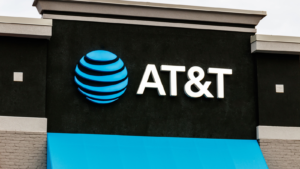Here, the seven dividend stocks listed across diverse sectors present solid prospects for the long term. From the robust real estate ventures of the first one and the second one to the pharmaceutical prowess of the fourth one, these stocks hold attractive yields with resilience and growth potential. The third one’s tenant stability and the sixth one’s smart market strategies suggest the diversity and strength within this select group.
Read more to learn about these dividend stocks, their performance, strategic moves, and the underlying fundamental factors that make them worthy additions to any investment portfolio.
Dividend Stocks: VICI (VICI)

VICI (NYSE:VICI) provides a dividend yield of 5.5% (forward) with a payout of $1.7. The company maintains a payout ratio of 65% with a 5-year growth rate of over 10% in dividends.
In 2023, VICI attained an adjusted fund from operations (AFFO) per share of $2.15, with a year-over-year (YOY) growth of 11.8%. This growth rate outpaced industry benchmarks and positioned VICI as a top performer in the S&P 500 REITs reporting AFFO per share.
Additionally, VICI’s constant performance has a track record of attaining a compound annual growth rate (CAGR) of 8.5% in AFFO per share from 2018 through 2023. This growth demonstrates the company’s strategic focus on maximizing valuation through efficient capital deployment and operational edge.
Finally, in 2023, VICI executed strategic investments to expand its geographic footprint. The company entered three new countries and acquired properties in vital US markets like Texas, California, and North Carolina. Hence, this geographic diversification reduced concentration risk and boosted VICI’s exposure to high-growth regions with favorable economic shifts.
NNN (NNN)

NNN (NYSE:NNN) provides a slightly lower forward dividend yield at 5.4% and has a long history of 33 years of dividend growth. Further, with a $2.26 payout, the payout ratio is 69%, and the 5-year growth rate is 2.6%.
Additionally, NNN’s conservative guidance reflects its focus on long-term valuation. NNN’s guidance for 2024 includes core Funds From Operations (FFO) and AFFO projections based on factors such as acquisition and disposition volumes, general and administrative (G&A) expenses, and property expenses. The REIT forecasts a range of $3.25-$3.31 per share for core FFO and $3.29-$3.35 per share for AFFO.
Furthermore, in 2023, NNN REIT executed strategic acquisitions of over $800 million, reflecting its edgy approach to portfolio expansion. The acquisitions were made at an initial cap rate of 7.6%. This indicates the high yield its properties generate relative to their purchase price. The REIT’s focus on acquiring properties with attractive initial cap rates depicts its focus on maximizing returns. Thus, by targeting properties with favorable income potential, NNN REIT solidifies its revenue-generating capabilities and diversifies its real estate portfolio.
Dividend Stocks: Broadstone (BNL)

Broadstone (NYSE:BNL) stands out with a relatively higher dividend yield of 7.7% (forward basis), offering a payout of $1.14 with a payout ratio of 73%. Interestingly, Broadstone has maintained dividend growth for three years. Operational edge and tenant stability derive from Broadstone’s valuation growth.
Furthermore, Broadstone’s portfolio, predominantly leased to industrial, retail, and restaurant tenants, holds solid performance metrics, including 99.4% occupancy and 99.2% rent collections as of Dec. 31, 2023. These metrics reflect the stability of Broadstone’s tenant base and its fundamental capability to generate consistent cash flow and rental income.
Despite the challenging macro backdrop, Broadstone’s credit performance remains solid, exceeding expectations with credit performance in line with prior years and minimal issues related to bad debt. Additionally, the successful generation of $200 million in disposition proceeds for 2023 surpasses initial guidance, highlighting Broadstone’s sharp asset recycling and risk mitigation strategies.
Finally, Broadstone’s five times net debt leverage ratio indicates a robust and flexible position. The company’s mostly fixed-rate debt structure minimized interest rate risk, boosting stability and predictability. Hence, with no material near-term maturities and prudent capital management, BNL maintains financial resilience and agility to navigate changing markets.
Pfizer (PFE)

Pfizer (NYSE:PFE) holds a dividend yield of over 6% (forward basis), paying out $1.68 annually and maintaining a relatively high payout ratio of 90%. The company delivered a 5-year growth rate of 4.8% with 13 years of dividend growth.
Furthermore, Pfizer’s top-line growth was boosted by combining new product launches and in-line product growth. Notably, the company received nine new molecular entity approvals from the U.S. Food and Drug Administration (FDA) in 2023. This indicates the company’s strong focus. Additionally, Pfizer completed the acquisition of Seagen (NASDAQ:SGEN) in December 2023, uplifting its lead in the oncology market. The combined strength of Pfizer’s and Seagen’s portfolios is expected to drive growth over long-term cycles.
Moreover, Pfizer’s formation of the Business Innovation segment, which includes Pfizer CentreOne and Pfizer Ignite, reflects its focus on diversifying its top-line and expanding into new verticals. These initiatives frame strategic guidance and end-to-end research services.
Finally, Pfizer’s pipeline developments suggest its focus on advancing scientific research and capturing unmet medical demands. Critical pipeline candidates include Elrexfio, Padcev, Prevnar 20, Talzenna, Tivdak, and Velsipity. Each of these candidates represents a massive potential opportunity for Pfizer to expand its portfolio and capture market share in specific therapeutic areas.
Dividend Stocks: 3M (MMM)

3M (NYSE:MMM) has a forward dividend yield of 6.5% with a payout of $6. There is a dividend payout ratio of 65% and a 5-year growth rate of 1.7%. Notably, the company has had a solid 65 years of dividend growth.
3M prioritizes growth opportunities in sectors such as automotive electrification, climate technology, and industrial automation. Additionally, the the spin-off of Solventum (the healthcare business) demonstrates a strategic focus on optimizing the portfolio to enhance valuations.
Additionally, the company plans to exit low-growth or non-profitable segments within the consumer business, reflecting its strategic focus on resources in high-potential areas. Despite challenges, 3M maintains a solid balance sheet with a net debt reduction of $2 billion (17%).
Overall, the upcoming spin-off of the healthcare business is expected to solidify the balance sheet further, providing additional liquidity and financial flexibility. Finally, smart cash generation capabilities enable 3M to invest in growth initiatives, return capital to shareholders, and manage legal obligations.
Verizon (VZ)

Verizon (NYSE:VZ) provides a forward dividend yield of 6.5% with a payout of $2.66. The company maintains a relatively low payout ratio of 56%, with a 5-year growth rate of 2% and 19 years of dividend growth.
One of Verizon’s standout advantages is MyPlan, a flexible wireless plan designed and backed by extensive customer research. Launched in 2023, myPlan has quickly gained traction, attracting 13.1 million subscribers.
In addition to MyPlan, Verizon differentiates itself through exclusive discount offers and content bundles. The company is partnering with leading content providers, offering unique perks such as Netflix (NASDAQ:NFLX) and Max for $10 monthly. As a result, Verizon may boost its value proposition and sharpen its competitive edge.
Finally, Verizon’s focus on expanding into new markets and investing in emerging technologies such as fixed wireless access and private 5G networks may lead to higher valuations and market share.
AT&T (T)

AT&T (NYSE:T) is attached with a forward dividend yield of 6.6% and a payout of $1.11. In detail, AT&T’s prudent capital allocation strategy has been a vital enabler of its value growth and dividend sustainability. This allows the company to invest in strategies while maintaining a solid financial standing and generating considerable free cash flow.
The company has continued investments in 5G and fiber networks and disciplined capital expenditure management. These investments have supported the company’s growth objectives and positioned it as a leader in connectivity solutions.
Despite elevated investments in network infrastructure, AT&T delivered a better-than-expected free cash flow of $16.8 billion in 2023, exceeding the previously raised guidance. This robust free cash flow generation demonstrates the company’s fundamental capability to balance investment priorities with cash flow generation.
Finally, AT&T focuses on debt reduction and balance sheet optimization. The company has a year-end net debt to adjust the EBITDA ratio below three times and a path to attain the target range of 2.5 times in H1 2025. Therefore, the company’s debt reduction efforts and improved flexibility boost its valuation.
As of this writing, Yiannis Zourmpanos held long positions in PFE, MMM, VZ, and T. The opinions expressed in this article are those of the writer, subject to the InvestorPlace.com Publishing Guidelines.
Yiannis Zourmpanos is the founder of Yiazou Capital Research, a stock-market research platform designed to elevate the due diligence process through in-depth business analysis.
